Applications for the Planned Interventions Programme 2024/25 are now closed. Funding awards are subject to budget availability. Further information on future funding rounds will be available on the Education Authority website - Education Authority
What is the Planned Interventions Programme?
The Planned Interventions Programme funds community activity to provide positive alternatives for young people at risk of becoming involved in anti-social behaviour, sectarianism and recruitment from paramilitary gangs, and to address heightened inter and intra-community tension around interfaces (including not only physical peace walls, but anywhere there is a potential for community tensions to arise).
What is the aim of the Programme?
The Planned Interventions Programme aims to engage the ‘most at risk’ young people between the ages of 9 to 25 years in positive experiences and opportunities, as a diversion from involvement in sectarian activities, civil disorder or criminal behaviour.
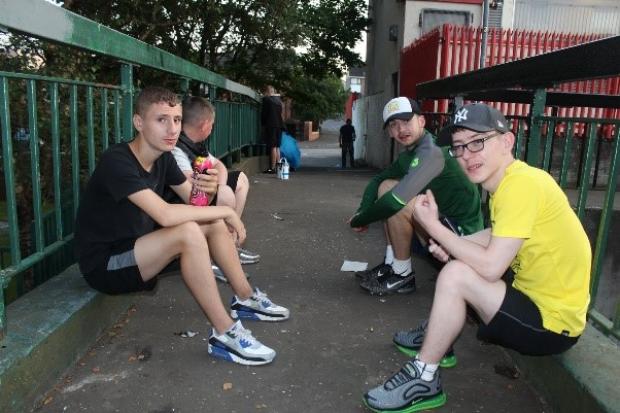
The Programme also seeks to develop the capacity of individuals and groups of children and young people to meaningfully take part in structured cross community engagement and relationship building programmes, such as T:BUC Camps.
T:BUC Journeys : Planned Interventions Programme
How is the Programme delivered?
Delivered annually as part of the Executive’s wider ‘Together: Building a United Community (T:BUC)’ strategy. The Programme is funded by The Executive Office and administered by the Education Authority.
Each application to the Planned Interventions Programme is scored and ranked against a number of key criteria and must demonstrate how they meet specific outcomes. Planned Intervention Funding – EANI Funding
What difference has the Programme made?
The main outcomes of the Planned Interventions Programme are to:
- Reduce the number of crime and antisocial behaviour incidents in the areas where the young people live
- Reduce the number of young people engaging in risk taking behaviours
- Increase the % of young people who think favourably about young people in the other community.
Who can apply for funding?
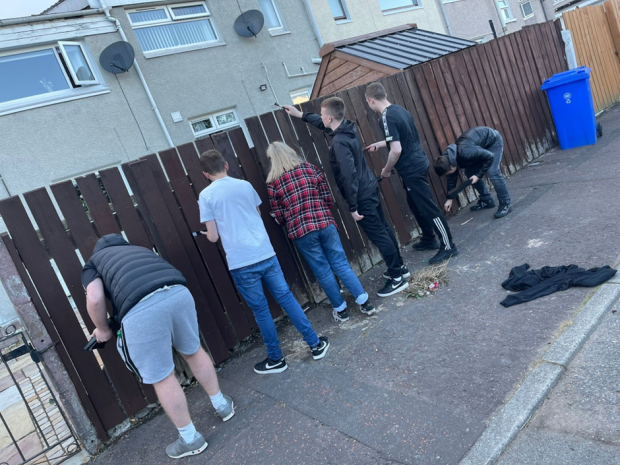
Applications can only be made by registering an account on the Education Authority Youth Service Funding Portal.
Support for applications
The Education Authority hosts a series of workshops on the applications process in the run up to the launch of the Programme each year, both in person and online. If you are new to the programme, it is strongly recommended that you attend. Updates also provided on our social media accounts (please see below). Please register your attendance for the online events - Buy tickets for EA Youth Service (tickettailor.com).
Additional support is available to groups on a 1 to 1 basis to help complete applications through the online funding portal. This may be requested by logging a request through plannedintervention@eani.org.uk.
Outcomes
Planned Interventions 2023/24
69 projects were completed under the 2023/24 Programme.
Planned Interventions 2022/23
77 projects have been completed under the 2022/23 Programme benefiting 1459 young people.
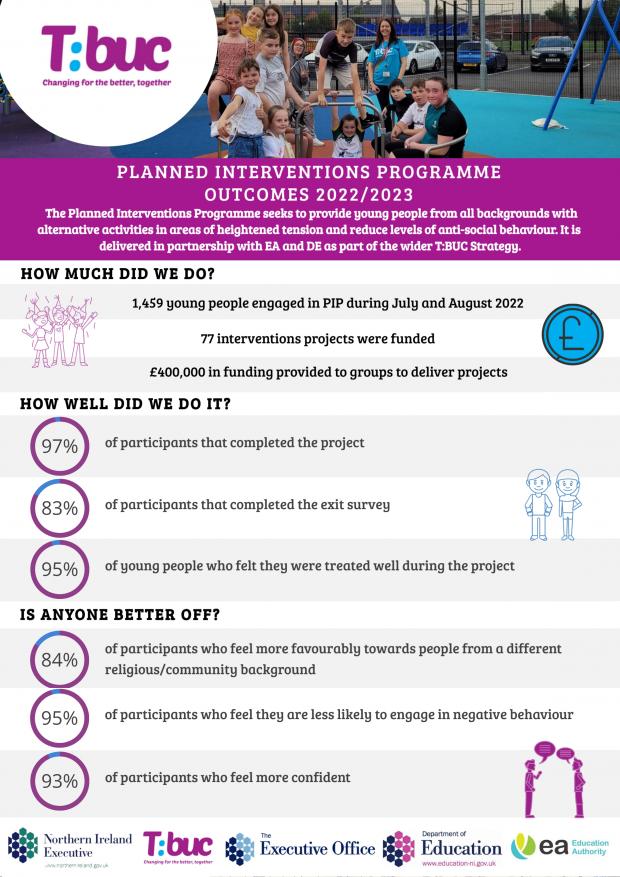
Planned Interventions 2021/22
108 projects have been completed under the 2021/22 Programme c. 1300 young people engaged.
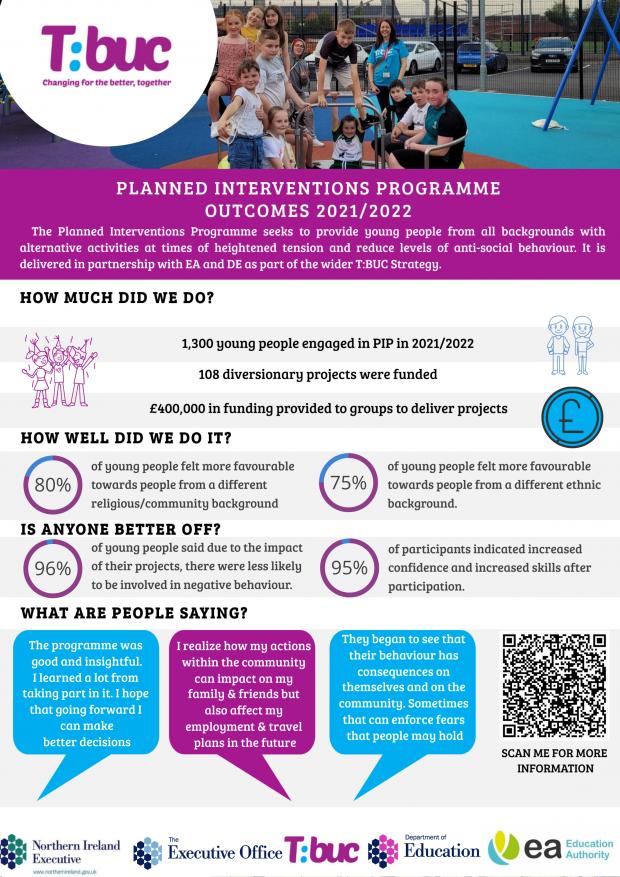
Planned Interventions 2020/21
91 projects were delivered under the 2020/21 Programme benefitting c. 1,135 participants.
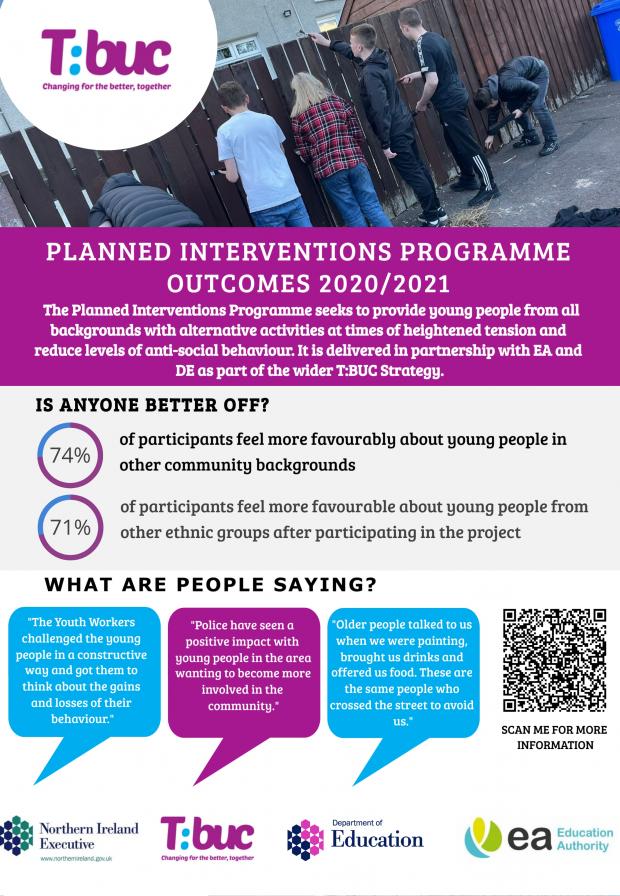
Media
Updates on Planned Interventions and the T:BUC Camps Programme are circulated via the T:BUC Camps social media accounts, and EA Youth Services accounts where you can also see updates from current projects in delivery, in these and other programmes.
Planned Interventions - News stories
TBUC Camps Programme - Home | Facebook - TBUC Camps Programme - Home | Facebook
EA Youth Service - Home | Facebook - EA Youth Service - Home | Facebook
TBUC Camps (@TBUCCamps) / Twitter - TBUC Camps (@TBUCCamps) / Twitter
EA Youth Service (@eayouthservice) / Twitter - EA Youth Service (@eayouthservice) / Twitter
Further information
You can register an account on the Education Authority Youth Service Funding Portal at: www.eanifunding.org.uk/plannedintervention
